- Home
- William Shakespeare
King John & Henry VIII Page 30
King John & Henry VIII Read online
Page 30
ACT 1 SCENE 2
Lines 1–31: Henry thanks Wolsey for the discovery and prevention of Buckingham’s plot. He calls for Buckingham’s surveyor to be brought before the court to “justify” his “confessions” and go through Buckingham’s “treasons” “point by point.” The queen arrives with the Dukes of Norfolk and Suffolk and kneels before the king. As Henry raises her, she says she’ll remain kneeling since she’s “a suitor” to him. He places her beside him, saying half her suit is granted, since she has half his power, and the other half granted before asked, and tells her to continue. She thanks him and explains that she wishes the king to “love” himself and not forget his “honour” or the “dignity” of his “office.” Henry’s subjects are grieved by the taxes imposed on them, which are blamed on the Cardinal but that the king himself has not escaped reproach, and there is talk of rebellion.
Lines 32–75: The Duke of Norfolk confirms all this, and explains how the cloth workers have had to lay off those who depend on them for work, who are now starving and desperate. Henry knows nothing of this and asks Wolsey to explain. The Cardinal claims that he’s only responsible for “a single part” of state business. Katherine argues that Wolsey is responsible for “fram[ing]” policies. The “exactions” (taxes) the king wishes to know about are an impossible burden to bear. They’re said to have been devised by Wolsey but if this is not the case he is blamed unjustly. The king again demands clarification. Katherine apologizes for trying his “patience” and explains that commissions have been set up demanding one sixth of a subject’s wealth to be paid immediately, the money supposedly going to pay for the king’s wars with France. This is why the people are angry and she wishes he would consider the matter at once, since there’s no greater example of dishonorable treatment.
Lines 76–120: Henry exclaims that this is not according to his wishes. The Cardinal explains that his was only a single vote in the Privy Council and that others are just as much responsible. Slander by those who don’t know anything about him or his deeds is the price virtue has to suffer. We shouldn’t fear to do what’s necessary because of those who always complain. Malicious critics often refuse to believe in or censure our best deeds while our worst are praised. If we’re too frightened to move in case we’re made fun of or criticized, we’ll take root and become no more than “state-statues.” Henry retorts that “Things done well” and with “care” will not lead to “fear.” Things done without a precedent will turn out badly. He asks if Wolsey had any legal precedent. Henry believes not and argues that people must be subject to the law, not the king’s will. Taking one sixth of people’s income is like hacking at a tree, which may leave it standing but will ultimately lead to its death. Henry orders letters to be sent to all the counties with free pardons. Wolsey tells his secretary to write revoking the tax, adding that he should imply that this has been through his intercession with the king.
Lines 121–244: Buckingham’s surveyor enters. Katherine’s sorry the duke no longer enjoys the king’s favor. Henry’s sorry too: the duke’s an educated man with great natural gifts but his mind has grown “corrupt.” He invites Katherine to listen to the case against him. The Surveyor claims that Buckingham said if the king died without children, he’d seize the throne and revenge himself on the Cardinal. The Surveyor says Buckingham based this on the “vain prophecy of Nicholas Hopkins,” a Carthusian monk who was his confessor, that “Neither the king” nor his “heirs” would prosper, and the duke would govern England. Katherine points out that the Surveyor was dismissed because of the tenants’ complaints and warns him not to make these charges out of resentment and thus endanger his “nobler soul.” The Surveyor claims he’d warned the duke but he took no notice, adding that if the king had died in his last illness, he’d have had Wolsey and Sir Thomas Lovell beheaded. Furthermore, Buckingham planned to assassinate him personally. Wolsey asks if it’s safe for Buckingham to remain free. Katherine responds only with the hope that God will put things right: “God mend all.” Henry is convinced of Buckingham’s guilt and refuses to show him mercy.
ACT 1 SCENE 3
The Lord Chamberlain and Lord Sands are discussing the spellbinding effect of the new fashions brought back from France when Sir Thomas Lovell announces a proclamation against them. They agree that they’re glad to see the back of them, English dress and customs are better. All three are going to a great feast later that evening given by Wolsey and praise his generosity.
ACT 1 SCENE 4
Sir Henry Guildford welcomes the ladies to Cardinal Wolsey’s feast as the Lord Chamberlain, Sands, and Lovell arrive and seat themselves between the ladies. Their conversation is filled with sexual innuendo. Sands sits next to Anne (Bullen), apologizes for talking “a little wild” and then kisses her. Wolsey arrives and bids all his guests be merry. Sands continues to flirt with Anne. A masque of shepherds (including Henry in disguise) arrive and dance with the ladies. Henry chooses Anne. Wolsey says if there’s one among them worthier of the place than he, then he would surrender it with his “love and duty.” They confirm that there is but he must guess who. Wolsey chooses Henry, who asks him about Anne. Henry proposes a toast and leads Anne and the others into the next room.
ACT 2 SCENE 1
Lines 1–67: Two Gentlemen discuss Buckingham’s trial. He pleaded not guilty and demanded to see his accusers face-to-face. His surveyor, chancellor, and confessor were brought before him, together with the monk, Hopkins, and accused him. He was found guilty. When he came to the bar to hear the judgment, he was initially upset but recovered himself. They blame Wolsey, who had Buckingham’s son-in-law made Lord Deputy of Ireland so that he’d be out of the way and not in a position to help his father-in-law. They note that Wolsey sends away anyone the king likes and that everyone hates him while all admire “ ‘bounteous Buckingham / The mirror of all courtesy.’ ”
Lines 68–153: Buckingham enters with officers of the court and commoners. He addresses those present, proclaiming his innocence and forgiving his enemies. He asks his friends to accompany him and, with their prayers, lift his soul to heaven. Lovell asks forgiveness, which Buckingham gives with “blessings” and his wishes for the king’s long life. He relates how his father was betrayed, whereas he at least had a trial, but, like his father, he was betrayed by servants. He warns them to be careful how they choose their friends. He asks for their prayers, then says “Farewell” and “God forgive me” before departing.
Lines 154–194: The two Gentlemen are full of pity. One says he’s heard a hint of something even worse—rumor of a separation between “the king and Katherine.” The other didn’t believe it because Henry commanded the Lord Mayor to stop the rumor. The other replies that “it grows again”; it’s believed that the Cardinal or someone near him, “out of malice” to the “good queen” has planted a “scruple” in Henry’s head that will “undo” her. Cardinal Campeius, the papal legate, has arrived. They believe that Wolsey is punishing Katherine because her nephew, the Holy Roman Emperor, refused him the archbishopric of Toledo. They conclude that the place is too public and they should continue their conversation in private.
ACT 2 SCENE 2
Lines 1–68: The Lord Chamberlain is reading a letter that describes how his servant was bringing him some horses when one of the Cardinal’s men took them, saying “his master would be served before a subject, if not before the king.” He reflects that the Cardinal wants to have everything. The Dukes of Norfolk and Suffolk arrive and ask how the king is. The Lord Chamberlain replies that his “conscience” is troubled by his marriage, but Suffolk jokes that Henry’s “conscience / Has crept too near another lady.” Norfolk agrees and blames the Cardinal. Suffolk says the king will learn the truth one day. Norfolk accuses Wolsey of advising Henry to divorce Katherine who loves him and has been “like a jewel” around his neck for “twenty years” “yet never lost her lustre.” Wolsey’s plan is for Henry to marry the French king’s sister. They should pray for deliverance since he’d turn them
all from “princes into pages” and he’ll do whatever he wants. Suffolk doesn’t care about Wolsey: he’ll leave him to the Pope to deal with. They go in to talk to the king.
Lines 69–162: Henry appears sad but he’s angry with them for disturbing him. Wolsey and Cardinal Campeius enter. Henry greets them and dismisses Norfolk and Suffolk. Wolsey praises Henry’s moral scruples and the justice of his case before introducing Campeius. Henry welcomes him. Campeius says that he and Wolsey will judge the case between him and the queen impartially. Henry wants Katherine to have the best representation and sends for Stephen Gardiner, his new secretary. While Henry and Gardiner speak, Campeius asks Wolsey about Gardiner’s predecessor, the virtuous and learned Doctor Pace, saying that Wolsey is blamed for sending him away out of envy and malice. Wolsey replies that he was a fool, whereas Gardiner will do as he asks. Henry says that Blackfriars seems the “most convenient place” to hear the case, lamenting that he must leave Katherine according to his conscience.
ACT 2 SCENE 3
Lines 1–60: Anne is discussing Katherine’s situation with an Old Lady. She pities her and respects Katherine’s virtue, believing it better to be content to live humbly. She “would not be a queen.” The Old Lady disagrees and says she would and so would Anne: she’s being hypocritical since she’s an attractive woman and hence ambitious. Anne denies it—she wouldn’t be a queen “for all the riches under heaven.” The Old Lady says she would and asks Anne if she’d like to be a duchess then; Anne says “No.” The Old Lady mocks her, saying she’s weak, she’ll never get anywhere with that attitude.
Lines 61–127: The Lord Chamberlain enters and tells Anne that Henry commends her and has made her Marchioness of Pembroke and given her “A thousand pound a year, annual support.” Anne accepts graciously but says she can offer nothing in return but “prayers and wishes.” In an aside the Chamberlain confides that the king has been caught by Anne’s mixture of “beauty and honour.” He hopes she may provide “a gem / To lighten all this isle.” On his departure the Old Lady complains that she’s “been begging sixteen years in court” but has never had Anne’s good fortune. Anne says she doesn’t understand and the Old Lady mocks her asking if she’s heard the one about the woman who wouldn’t be queen for “all the mud in Egypt.” Her companion continues to tease her about her good fortune. Anne tells her to think what she pleases. She doesn’t know what to think but they should return to comfort the queen. She asks the Old Lady not to repeat what she’s heard.
ACT 2 SCENE 4
Lines 1–71: The hearing of the case between the king and Katherine. When Katherine is called she “makes no answer” but goes and kneels before Henry. She asks him why he’s trying to get rid of her since she has always been “a true and humble wife” to him. Both their fathers were wise men and the validity of their marriage was thoroughly debated beforehand. She asks to be spared till she can be advised by her “friends in Spain.” Wolsey says that she has her chosen advocates to represent her so there is no need to wait. Cardinal Campeius agrees.
Lines 72–143: Katherine accuses Wolsey of being her “enemy”: it is he who has “blown this coal” between her and Henry, and she refuses him as her judge. Wolsey denies the charge and says everything has been done according to “the whole consistory [formal meeting of Roman Catholic cardinals] of Rome.” He cites Henry as witness to the truth of this. Katherine replies that she is not cunning like him: Wolsey appears “meek and humble-mouthed” but his heart is “crammed with arrogancy, spleen and pride.” He has been fortunate and enjoyed the king’s “favours” but he cares more for worldly honor than spiritual qualities. She again refuses him as her judge, insisting that the Pope alone can judge her case. She curtsies to Henry and starts to leave. Cardinal Campeius accuses Katherine of being stubborn. Henry calls her back but Katherine refuses to listen and vows not to appear in their courts on “this business” in future.
Lines 144–259: After her departure Henry praises Katherine’s “rare qualities,” her gentleness, piety and nobility: she is “the queen of earthly queens.” Wolsey demands his name be cleared, for Henry to admit that he never broached the subject to him. Henry says that is so and that Wolsey has many enemies and it is they who have incensed the queen against him. He goes on to say that on the contrary, Wolsey tried to prevent this. Henry then goes on to explain his reasoning and justify himself. It was the Bishop of Bayonne who first caused him to question his marriage during marriage negotiations between Henry’s daughter Mary and the Duke of Orléans, when he demanded assurance that Mary was legitimate given that Henry had married his deceased brother’s wife. Henry’s conscience was pricked and he asked himself whether this was the reason that all their male children had died. It was then he started to question the legality of his marriage, approaching the Bishop of Lincoln and the Archbishop of Canterbury. Cardinal Campeius says they cannot proceed without the queen’s presence. In an aside Henry suspects the Cardinals of deliberate delay, before he breaks up the court.
ACT 3 SCENE 1
Katherine is with her women and asks one of them to sing to “disperse” the “troubles” that make her soul “sad.” Griffith enters to say that the “two great cardinals” have come to see her. They ask to speak to her in private but she says she has nothing to hide—“truth loves open dealing.” When Wolsey starts to speak in Latin Katherine stops him. He continues in English, assuring her that they come in good faith to give her honest advice and “comforts.” She again asks for friends to represent her since no Englishman may go against Henry’s wishes. They tell her to put her trust in “the king’s protection.” She’s angry and says she will put her trust in God alone and warns them to take care that the “burden” of her “sorrows” doesn’t fall on them. She has always been loving, faithful, and obedient, and this is her reward, to be cast aside now that she is old. Nothing will make her give up her position as Henry’s wife: she is “the most unhappy woman living.” They try to persuade her to be patient and accept her situation and not make the king hate her. Katherine tells them to do what they will, apologizing for and excusing her “unmannerly” treatment.
ACT 3 SCENE 2
Lines 1–98: A group of lords have come together to complain about Cardinal Wolsey. The Earl of Surrey (Buckingham’s son-in-law) is happy for any opportunity for revenge. Wolsey has no respect for the nobility and passes them all over. The only way to bring him down, though, is to stop him getting to Henry: his “tongue” has “witchcraft” over the king. Norfolk and Suffolk explain that that’s no longer the case. By chance Henry has a letter of Wolsey’s to the Pope advising him not to grant Henry the annulment of his marriage to Katherine since he’s “tangled in affection” with Lady Anne Bullen. Henry sees how Wolsey is playing for time in the matter but it’s too late—he’s already married Anne and there are orders for her coronation. The lords are all pleased. Cardinal Campeius has now left and they’re awaiting the return of Stephen Gardiner, who has consulted all the learned authorities in Europe who agree to Henry’s divorce. Katherine is henceforth to be known as “Princess Dowager,” “widow to Prince Arthur.” Gardiner will be made archbishop as a reward for his services.
Lines 99–172: Cardinal Wolsey enters with Thomas Cromwell. He asks him if the king has received his “packet” and looked over the papers inside. Cromwell says he has and asked Wolsey to attend him this morning. In an aside Wolsey says he wants the king to marry the Duchess of Alençon, the French king’s sister, not Anne Bullen. The watching lords comment on how “discontented” Wolsey appears. Wolsey continues his complaints against Anne and Cranmer. Henry enters, reflecting on the “piles of wealth” Wolsey has “accumulated.” He asks the lords if he’s arrived. They say he has but seems upset. Henry suggests it may be due to “a mutiny in’s mind” and tells them about the inventory in his state papers of all Wolsey’s goods. He is disillusioned, having believed that Wolsey’s thoughts were on spiritual rather than earthly matters.
Lines 173–250: The king takes
his seat and sends Lovell to speak to Wolsey, who greets the king apologetically. Henry says he must have been running over the inventory of his “best graces” which scarcely leaves him time for his “earthly audit.” Wolsey says he has time for both. Henry tells him how highly his father valued him and how close Wolsey has been to himself and how well rewarded. Wolsey replies that he has always done all he could for the king and thanks him for his generosity. The king says he has a “loyal breast” and gives him two papers to read, and leaves, frowning at the Cardinal.
Lines 251–412: Wolsey is puzzled, not knowing what has brought about the king’s displeasure. He reads the first paper, the inventory of all his wealth, gathered in order “to gain the popedom” and pay his “friends in Rome.” He blames himself for his negligence but believes he can explain it away until he finds the letter addressed “To th’Pope” and realizes that it’s all over—he can rise no higher and will inevitably fall. The lords reenter and tell him the king orders him to return “the great seal” (of office as Lord Chancellor) and to be confined at Asher House. Wolsey refuses to return it without their “commission”—the king gave it him and only the king can ask for its return. He knows they are motivated by “envy” and “malice.” Surrey accuses him of bringing about Buckingham’s downfall. Wolsey insults Surrey, saying he has “as little honesty as honour.” Surrey is incensed by his “arrogance.” They accuse him of hoarding goods and wealth and of treating the king as a servant, signing letters “Ego et Rex meus” (I and my king). He did things without the king’s knowledge such as taking the “great seal” abroad, making a peace treaty with the Duke of Ferrara (an Italian city-state), and sending money to Rome as bribes for titles and honors. The Lord Chamberlain thinks they’ve said enough: he feels sorry for Wolsey. Surrey says he “forgive[s] him” and Suffolk adds that he is to “forfeit all [his] goods, lands, tenements, / Castles” and everything else—he is no longer under the king’s protection. They leave him saying the king will hear of his refusal to return the great seal.

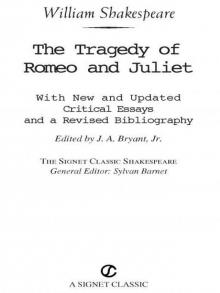 Romeo and Juliet
Romeo and Juliet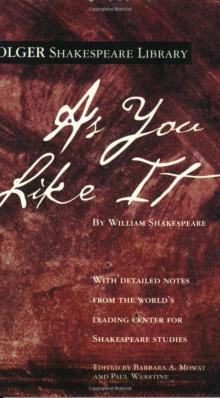 As You Like It (Folger Shakespeare Library)
As You Like It (Folger Shakespeare Library)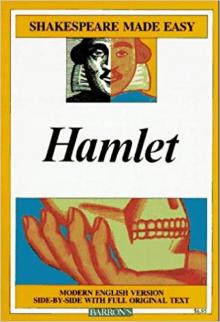 Hamlet
Hamlet Richard II (Folger Shakespeare Library)
Richard II (Folger Shakespeare Library) Macbeth
Macbeth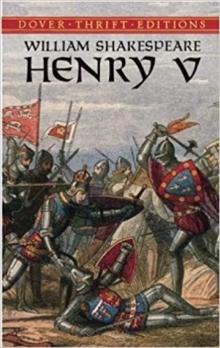 Henry V
Henry V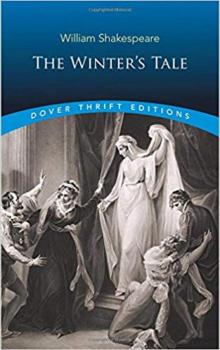 The Winter's Tale
The Winter's Tale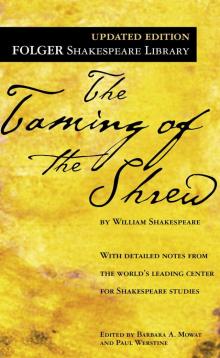 The Taming of the Shrew
The Taming of the Shrew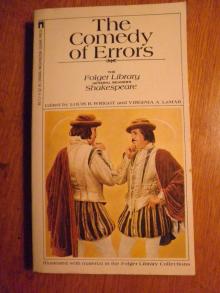 The Comedy of Errors
The Comedy of Errors King Lear (Folger Shakespeare Library)
King Lear (Folger Shakespeare Library)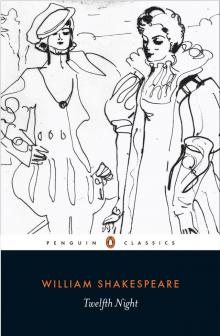 Twelfth Night
Twelfth Night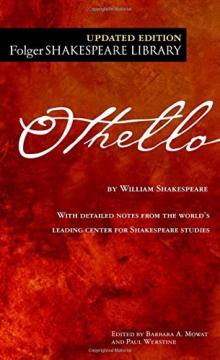 Othello
Othello The Two Gentlemen of Verona
The Two Gentlemen of Verona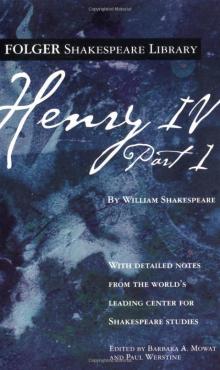 Henry IV, Part 1 (Folger Shakespeare Library)
Henry IV, Part 1 (Folger Shakespeare Library) King John/Henry VIII (Signet Classics)
King John/Henry VIII (Signet Classics)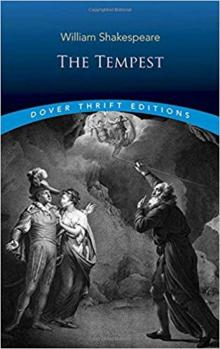 The Tempest
The Tempest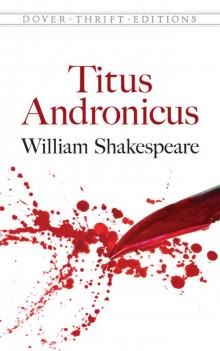 Titus Andronicus (Dover Publications)
Titus Andronicus (Dover Publications)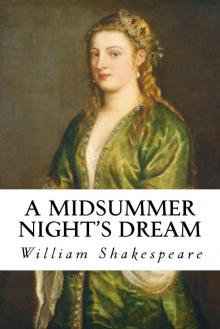 A Midsummer Night's Dream
A Midsummer Night's Dream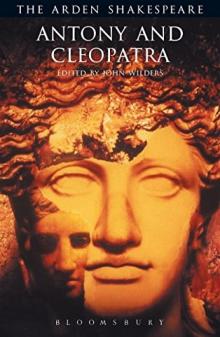 Antony and Cleopatra (Arden Shakespeare: Third Series)
Antony and Cleopatra (Arden Shakespeare: Third Series)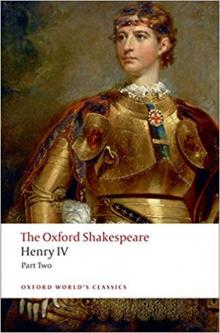 The Oxford Shakespeare: Henry IV, Part 2 (Oxford World's Classics)
The Oxford Shakespeare: Henry IV, Part 2 (Oxford World's Classics)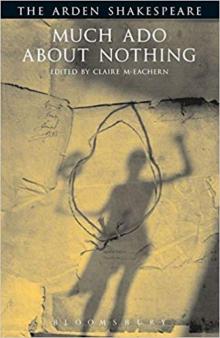 Much Ado About Nothing (Arden Shakespeare: Third Series)
Much Ado About Nothing (Arden Shakespeare: Third Series) All's Well That Ends Well
All's Well That Ends Well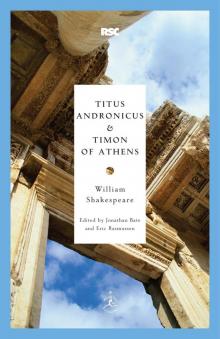 Titus Andronicus & Timon of Athens
Titus Andronicus & Timon of Athens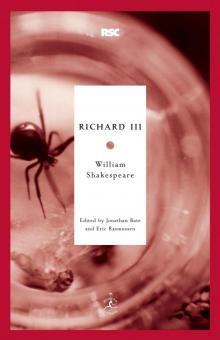 Richard III (Modern Library Classics)
Richard III (Modern Library Classics) Coriolanus
Coriolanus srsly Hamlet (OMG Shakespeare)
srsly Hamlet (OMG Shakespeare)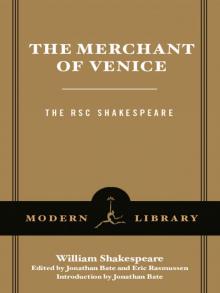 The Merchant of Venice
The Merchant of Venice Richard III
Richard III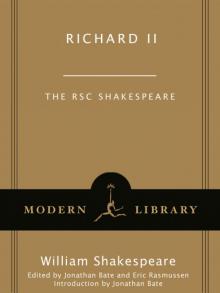 Richard II
Richard II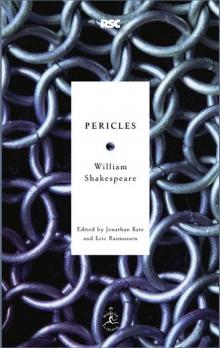 Pericles
Pericles As You Like It
As You Like It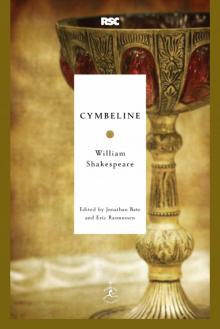 Cymbeline
Cymbeline Alls Wel that ends Well
Alls Wel that ends Well YOLO Juliet
YOLO Juliet A Midsummer Night #nofilter
A Midsummer Night #nofilter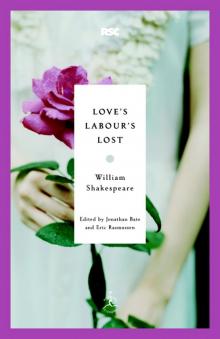 Love's Labour's Lost
Love's Labour's Lost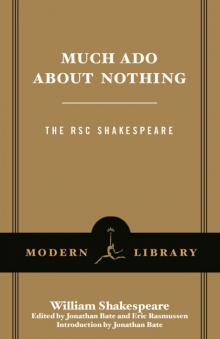 Much Ado About Nothing
Much Ado About Nothing Romeo & Juliet & Vampires
Romeo & Juliet & Vampires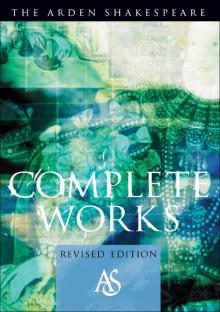 The Arden Shakespeare Complete Works
The Arden Shakespeare Complete Works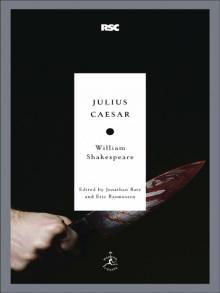 Julius Caesar
Julius Caesar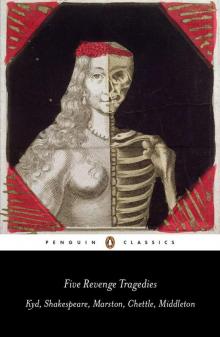 Five Revenge Tragedies: The Spanish Tragedy, Hamlet, Antonio's Revenge, The Tragedy of Hoffman, The Revenger's Tragedy (Penguin Classics)
Five Revenge Tragedies: The Spanish Tragedy, Hamlet, Antonio's Revenge, The Tragedy of Hoffman, The Revenger's Tragedy (Penguin Classics) Macbeth #killingit
Macbeth #killingit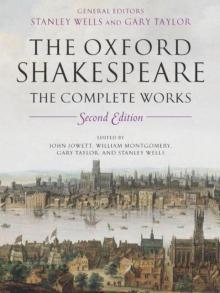 The Oxford Shakespeare: The Complete Works
The Oxford Shakespeare: The Complete Works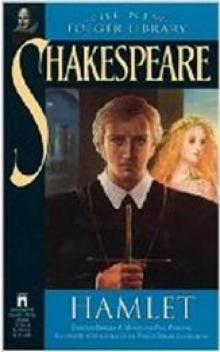 Hamlet, Prince of Denmark (Collins edition)
Hamlet, Prince of Denmark (Collins edition)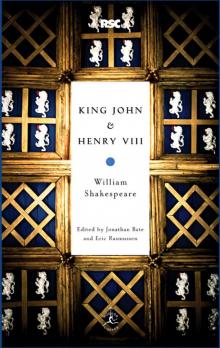 King John & Henry VIII
King John & Henry VIII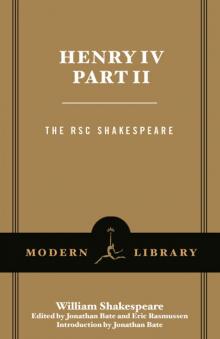 Henry IV, Part 2
Henry IV, Part 2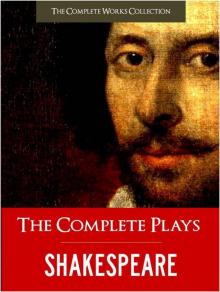 Complete Plays, The
Complete Plays, The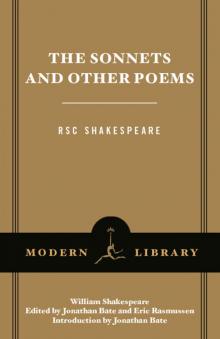 The Sonnets and Other Poems
The Sonnets and Other Poems Antony and Cleopatra
Antony and Cleopatra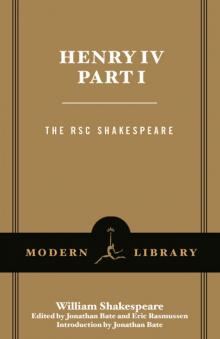 Henry IV, Part 1
Henry IV, Part 1 Is This a Dagger Which I See Before Me?
Is This a Dagger Which I See Before Me?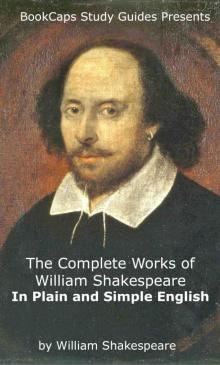 The Complete Works of William Shakespeare In Plain and Simple English (Translated)
The Complete Works of William Shakespeare In Plain and Simple English (Translated) The Sonnets
The Sonnets